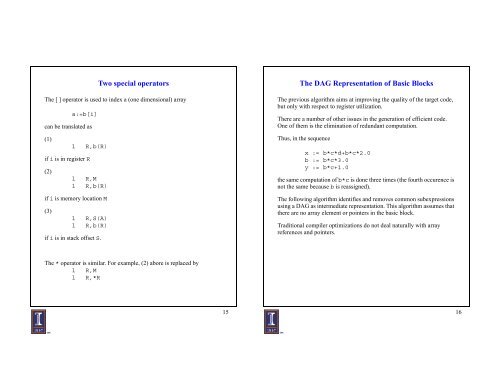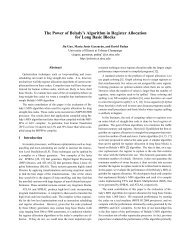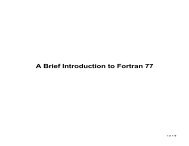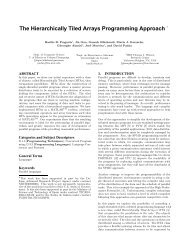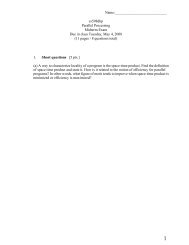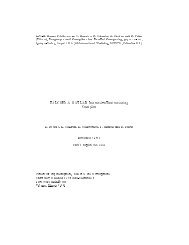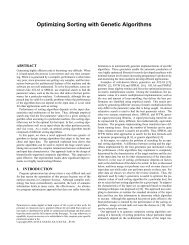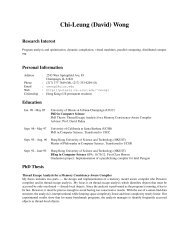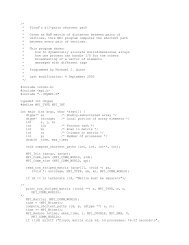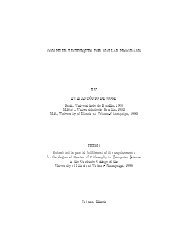Abstract Syntax Trees The Abstract Syntax Tree (AST) - Polaris
Abstract Syntax Trees The Abstract Syntax Tree (AST) - Polaris
Abstract Syntax Trees The Abstract Syntax Tree (AST) - Polaris
You also want an ePaper? Increase the reach of your titles
YUMPU automatically turns print PDFs into web optimized ePapers that Google loves.
Two special operators<br />
<strong>The</strong> [ ] operator is used to index a (one dimensional) array<br />
a:=b[i]<br />
can be translated as<br />
(1)<br />
l R,b(R)<br />
if i is in register R<br />
(2)<br />
l R,M<br />
l R,b(R)<br />
if i is memory location M<br />
(3)<br />
l R,S(A)<br />
l R,b(R)<br />
if i is in stack offset S.<br />
<strong>The</strong> DAG Representation of Basic Blocks<br />
<strong>The</strong> previous algorithm aims at improving the quality of the target code,<br />
but only with respect to register utilization.<br />
<strong>The</strong>re are a number of other issues in the generation of efficient code.<br />
One of them is the elimination of redundant computation.<br />
Thus, in the sequence<br />
x := b*c*d+b*c*2.0<br />
b := b*c*3.0<br />
y := b*c+1.0<br />
the same computation of b*c is done three times (the fourth occurence is<br />
not the same because b is reassigned).<br />
<strong>The</strong> following algorithm identifies and removes common subexpressions<br />
using a DAG as intermediate representation. This algorithm assumes that<br />
there are no array element or pointers in the basic block.<br />
Traditional compiler optimizations do not deal naturally with array<br />
references and pointers.<br />
<strong>The</strong> * operator is similar. For example, (2) abore is replaced by<br />
l R,M<br />
l R,*R<br />
15<br />
16


